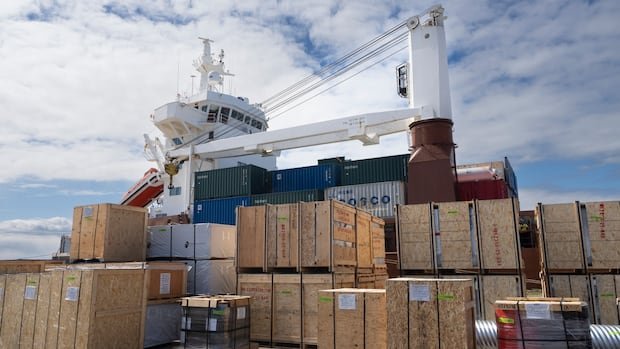Dawn Farrell, who serves as the chair of the board of directors at the Trans Mountain Corporation, has been appointed as the CEO of the Major Projects Office by Prime Minister Mark Carney. Carney expressed his excitement about this decision, emphasizing Canada’s legacy as a nation that builds essential infrastructure.
A source familiar with the matter had indicated earlier that Carney was seeking a candidate with a proven track record in managing large, intricate projects spanning multiple provinces and adept at navigating regulatory processes. This move is expected to foster stronger relations between Ottawa and Alberta.
Alberta Premier Danielle Smith commended Farrell’s appointment, highlighting her impressive corporate achievements within the province. Smith also mentioned that she considers Farrell an advisor and is pleased that both she and the prime minister share this perspective.
With nearly forty years of experience in the energy sector, including roles as an executive vice-president at B.C. Hydro and CEO of TransAlta, a prominent wind power producer in Canada, Farrell assumed the position of CEO at Trans Mountain in 2022.
Carney’s Bill C-5, aimed at expediting approvals for critical infrastructure projects identified as “nation-building,” was successfully passed through Parliament in June. The legislation, including the Building Canada Act, empowers the federal cabinet to select projects, provide upfront approvals, and supersede federal laws, environmental assessments, and permitting procedures.
The newly established Major Projects Office (MPO) will serve as a central hub for project proposals, grievances, and feedback, with the understanding that not all approved projects will receive federal funding. The office, based in Calgary but with branches in other major Canadian cities, will collaborate with the private sector, provincial and territorial partners, and the federal government to ensure cost-effective outcomes for taxpayers.
An Indigenous Advisory Council, scheduled to be formed in September, will offer advice on projects to the MPO, including representation from First Nations, Inuit, and Métis communities. Minister of Crown-Indigenous Relations Rebecca Alty emphasized the importance of centering Indigenous interests in Canada’s development.
Carney mentioned during a trip to Germany that initial nation-building projects could involve enhancing port infrastructure in Churchill, Manitoba, and Montreal. He disclosed plans for substantial investments in infrastructure, covering various sectors such as energy, ports, and intelligence.
Industry leaders, including the Canadian Association of Petroleum Producers (CAPP) and the Canadian Chamber of Commerce, voiced support for the MPO, viewing it as a positive step towards bolstering Canada’s energy sector and fostering investor confidence. However, some Indigenous leaders and environmental groups expressed concerns about the potential impact of major projects on their communities.
While the Conservative party criticized the government for the delay in establishing the MPO, Carney’s administration aims to drive efficient project approvals and advance critical infrastructure development across the country.


